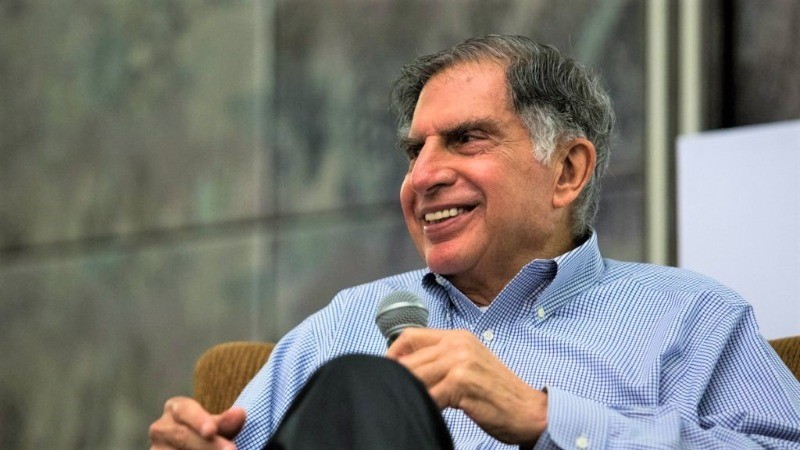
Ratan Tata’s vision, compassion, and relentless pursuit of excellence have profoundly shaped both India and the global landscape. His leadership transformed the Tata Group from a modest trading firm into a formidable conglomerate, setting the standard for corporate ethics and social responsibility. As India continues to evolve and flourish, the absence of Ratan Tata will be keenly felt in the business community, as he laid the groundwork for countless industries and innovations. This article offers a glimpse into the remarkable life and achievements of Ratan Tata, highlighting his contributions that extend far beyond the corporate world, reflecting a legacy of integrity, philanthropy, and unwavering commitment to progress.
A Journey of Leadership
Ratan Tata’s connection with the Tata Group began after he earned his Bachelor of Science in architecture from Cornell University in 1962. He joined the family business and quickly rose through the ranks. By 1972, he was appointed chairman of Tata Industries, and in 1991, he succeeded his uncle, JRD Tata, as the chairman of Tata Group. Under his leadership, the company transformed from a modest textile and trading firm into a global powerhouse with ventures in steel, automobiles, software, power, and airlines.
A Test of Strength During the 2008 Mumbai Terror Attacks
One of the most challenging moments in Ratan Tata’s leadership occurred during the 2008 Mumbai terror attacks, when terrorists from Lashkar-e-Taiba targeted several prominent locations, including the iconic Taj Hotel. The attack claimed 166 lives and left over 300 people injured. At the age of 70, Tata stood firm during the siege, which lasted 60 hours and took the lives of 33 people, including 11 Taj Hotel employees.
Commitment to Rebuilding and Supporting Victims
In the wake of the attacks, Ratan Tata vowed to rebuild the Taj Hotel and provide unwavering support to the families affected. He ensured that the families of the deceased received compensation equivalent to what their loved ones would have earned for the rest of their lives. The Tata Group also established The Taj Public Service Welfare Trust to provide humanitarian aid during such disasters. Tata personally visited the homes of victims, ensuring that they received the support they needed in difficult times.
Reflection on Unity and Resilience
In 2020, Ratan Tata reflected on the 12th anniversary of the Mumbai attacks, emphasizing the unforgettable destruction and the resilience of the people of Mumbai. He highlighted how the diverse population of the city came together, setting aside differences, to overcome the tragedy. In a heartfelt post, Tata reminded the world of the sacrifices made and urged society to honor the spirit of unity and compassion.
Read More: Legendary Industrialist Ratan Tata Passes Away at 86; Nation Mourns the Loss of an Icon
A Legacy of Leadership and Philanthropy
Ratan Tata’s passing marks the end of an era for the Tata Group and Indian industry. His leadership, compassion, and commitment to progress are celebrated as a lasting legacy. While his net worth was estimated at Rs 3,800 crore in 2022, placing him modestly at 421st on the IIFL Wealth Hurun India Rich List, this financial ranking does not reflect his true wealth—his values and philanthropic contributions. A significant portion of Tata Sons’ earnings, around 66 percent, is directed toward charitable causes through Tata Trusts, supporting education, healthcare, and rural development.
Read More: India Bids Farewell to Ratan Tata: Tendulkar, Modi, and Shah and More Lead Tibutes
Strategic Investments and Returns
Ratan Tata’s business acumen extended to strategic investments. In one instance, he sold a 0.06 percent stake in Upstox, a trading platform, for approximately Rs 18 crore, marking a 23,000% return on his initial investment. Despite the sale, he retained 95 percent of his original shares, demonstrating his approach of balancing profits while maintaining a stake in future growth.
Visionary Business Approach
Ratan Tata’s leadership transcended financial success. He championed innovation, ethical business practices, and inclusivity. His vision for Tata Group brought forward products that were both high-quality and affordable, and his leadership style inspired a culture focused on both profitability and positive social impact.
A Lasting Legacy of Social Responsibility
Ratan Tata will be remembered not only as a business icon but also as a philanthropist who embodied corporate social responsibility. His life serves as a reminder that true leadership and success involve the welfare of the broader community as much as financial achievement. His legacy continues to inspire future generations of business leaders to value compassion and social progress alongside profitability.
Read More: Ratan Tata Clarifies Rumours About His Hospitalisation...